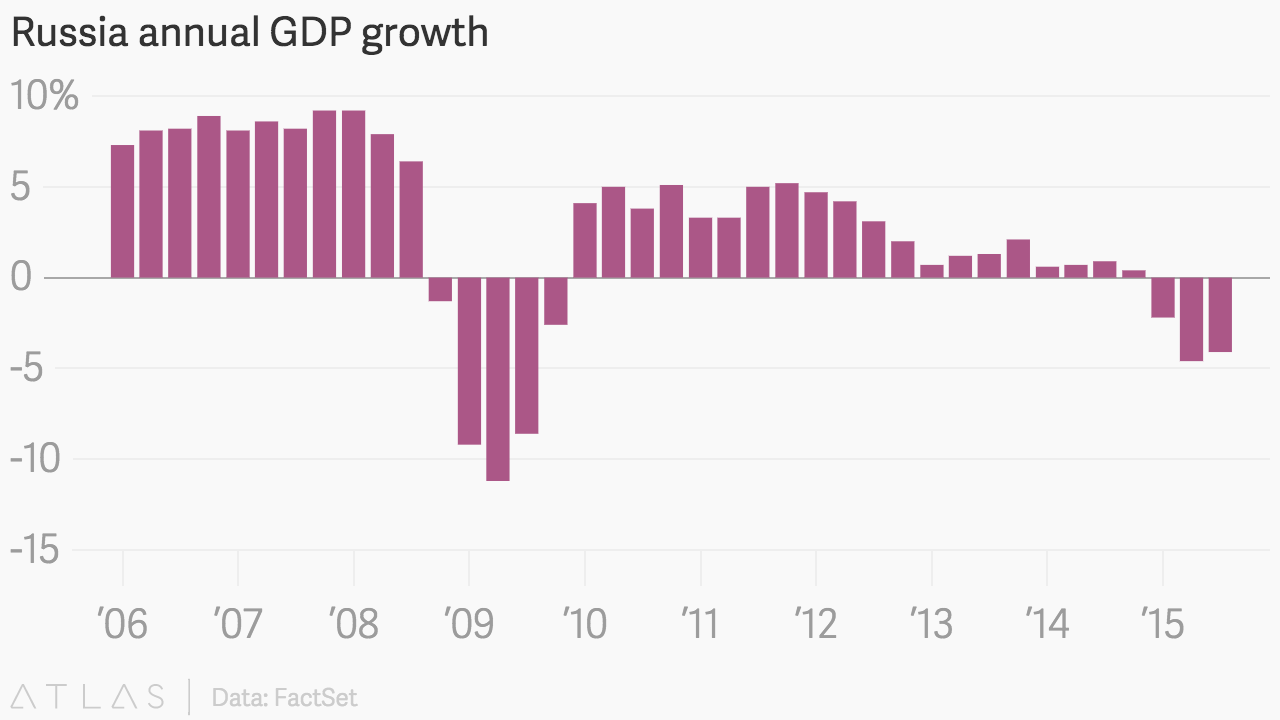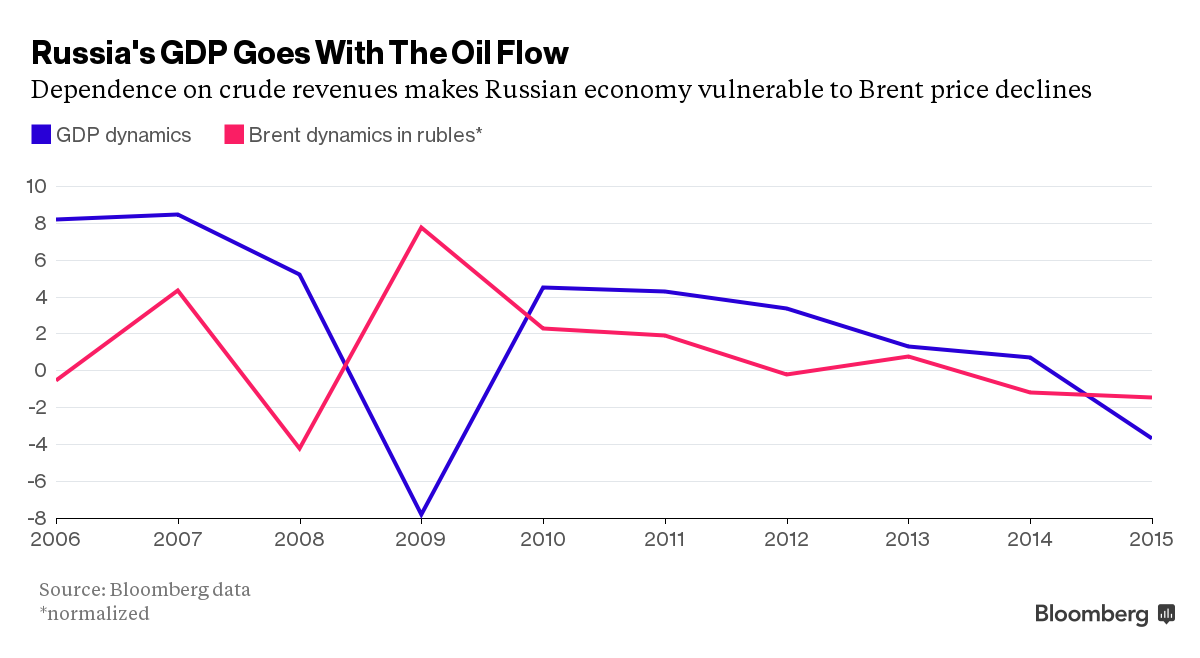6 things to know about Russia’s economy

The Yekaterinburg Arena stadium is being built to host 2018 FIFA World Cup matches.
Image: REUTERS/Maxim Shemetov - RTSVEDO
Stay up to date:
Russian Federation
Watch the Russia in the World session from the World Economic Forum's Annual Meeting 2017 here.
Low oil prices and sanctions over Ukraine have been taking their toll in the Russian economy.
In his annual state-of-the-nation address to parliament and the nation, President Vladimir Putin struck a conciliatory tone towards Western nations and turned the spotlight on domestic economic and social issues.
His message was that the Russian economy, which fell into recession in 2015, was now on the road to recovery.
Here's a look at some of the challenges that lie ahead.
Accept our marketing cookies to access this content.
These cookies are currently disabled in your browser.
Growth, or not
The Russian economy shrank by 3.7% in 2015, while real disposable income fell by 10%.

The recession, the worst for two decades, has continued this year, but the economic outlook for 2017 is brighter.
The International Monetary Fund (IMF) said the recession in Russia was less severe than previously thought, and the economy is expected to return to growth, unless oil prices plunge again.
Commodities
Russia is one of the world’s largest energy exporters, so the commodity price slump has hit hard – with high inflation hurting households and government coffers running low.
In 2015, oil and gas accounted for around 44% of government revenues.

However, the recent stabilizing of oil prices and a deal between major crude producers to limit output has led to hopes of higher prices in 2017.
Sanctions
Russia has also been feeling the pinch from sanctions imposed by the US and EU over the Ukraine crisis, which have limited its access to international capital markets.
In response, Russia placed import bans on various food and agricultural products, leading to further price rises.
Poverty
The World Bank warned earlier this year that rising prices were driving Russians into poverty.

The number of poor increased by 3.1 million to 19.2 million in 2015, and the World Bank predicted that poverty rates would return to 2007 levels, threatening “nearly a decade’s worth of gains”.

In his state-of-the-nation speech, Putin said he expected inflation to “drop considerably” to below 6% this year, with a 4% target for 2017.
Rainy day money
Russia’s Reserve Fund, designed to be tapped during tough economic times, is dwindling. The Times reported in September that the fund had shrunk by two thirds since 2014, and is expected to run out in 2017 unless there’s a significant rise in oil prices.
Once the reserves are gone, the government indicated it may have to dip into another money source, the National Wealth Fund, which is intended for financing future pensions and investment projects, rather than for covering budget shortfalls.
Competitiveness
Despite the recession, the Russian economy has remained stable in terms of competitiveness, according to the World Economic Forum’s Global Competitiveness Report 2016-2017.
Russia rose two places on the index to 43rd. This was partly due to better scores on education and innovation, plus an “improved domestic business environment and less negative business sentiment than expected”, the report said.
Putin has said he wants the government to cut red tape and create a more favourable business environment.

Don't miss any update on this topic
Create a free account and access your personalized content collection with our latest publications and analyses.
License and Republishing
World Economic Forum articles may be republished in accordance with the Creative Commons Attribution-NonCommercial-NoDerivatives 4.0 International Public License, and in accordance with our Terms of Use.
The views expressed in this article are those of the author alone and not the World Economic Forum.
Forum Stories newsletter
Bringing you weekly curated insights and analysis on the global issues that matter.